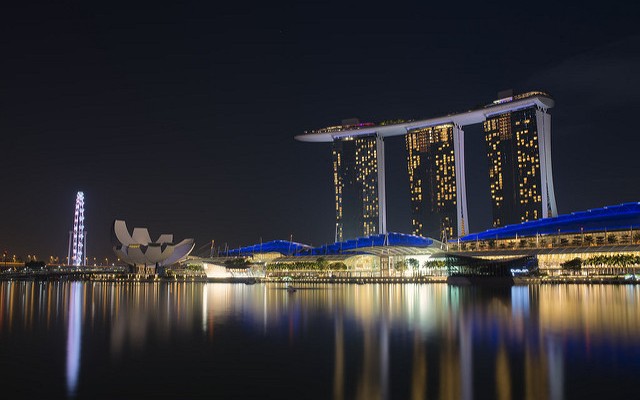The number of tourists making Singapore their end destination in 2016 is expected to increase by up to 8% year-on-year to 16.5 million thanks in part to the city-state’s ending of a decades-long ban on casinos.
According to a report from multinational financial services firm Credit Suisse, the former British colony is no longer being viewed as simply a stop-over point for tourists catching connecting flights to beaches in Thailand, Australia and Bali with total visitor numbers this year also likely to exceed forecasts from the Singapore Tourism Board.
Despite an overall sluggish economy, Singapore saw income from tourism surge by 25% in the four years after its first pair of casinos, Resorts World Sentosa and Marina Bay Sands, opened in 2010 with the Bloomberg news service revealing that the numbers of Chinese visitors doubled. Adding to this optimism, the first two months of 2016 has seen a 34% boost year-on-year in tourists from China as the currencies of nearby Malaysia and Indonesia strengthened against the yuan.
“2016 could be a record year of arrivals,” said Gerald Wong from Credit Suisse. “We expect Singapore to continue to benefit from continued growth in Chinese outbound travel.”
Tourism now accounts for about 10% of the nation’s gross domestic product while the Singapore Tourism Board declared that the gaming and entertainment market made up some 24% of total visitor spend in the first nine months of 2015.
Singapore is also benefiting from being a popular destination for business-travelers and has a strong meetings, incentives, conferences and exhibitions industry. It managed to retain a 4.5% share of all Asia-Pacific tourist arrivals between 2010 and 2014 even as Malaysia and Australia lost ground to nations such as Thailand and South Korea.
The Singapore Tourism Board divulged that 2015 had been a tough period for the country’s casinos with total tourism receipts dropping by 6.8% year-on-year to $16 billion despite a 0.9% increase in visitor arrivals to 15.2 million. However, these numbers still meant that the island nation drew more travelers than its giant neighbors India, Indonesia and The Philippines.


